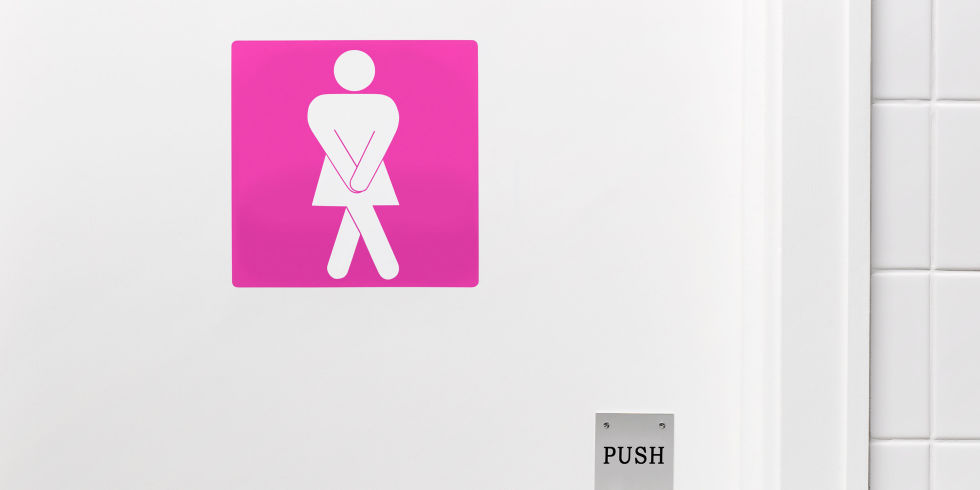Anyone who has experienced the discomfort of a urinary tract infection (UTI) will know how painful and uncomfortable they can be.
In case you’re one of the lucky few who has never suffered from a UTI, they’re usually caused by bacteria from the gut entering your urinary tract, and there are two different varieties: lower and upper.
Lower UTIs affect either the bladder (this type of infection is known as cystitis) or the uretha, while upper UTIs – which can be serious if left untreated – cause infections in the kidneys and the ureters (the tubes connecting your bladder to your kidneys).
Both types of UTI cause a host of unpleasant symptoms, including a burning feeling when you go to the loo, an urgent need to wee and cloudy, foul-smelling urine. Upper UTIs can also cause additional symptoms, including a high temperature, pain in your sides or back, and vomiting.
The NHS website recommends visiting your GP any time you have symptoms – especially those associated with an upper UTI. Your doctor may take a urine sample to test for bacteria and prescribe a course of antibiotics, but it can take between three to five days for the infection to clear completely.
So, what to do if you’re in the midst of a painful UTI and want to relieve some of your discomfort? Well, Prima.co.uk spoke to three healthcare experts to find how to can cope with a UTI at home. And, don’t worry, there’s more you can do besides downing cranberry juice…
1. Hydrate, hydrate, hydrate
It may sounds counterproductive when you’re actively avoiding the toilet, but drinking plenty of water is key.
‘Ensure you drink between two to three litres of fluid daily – preferably water – as this can help flush away the bacteria that cause infections,’ says Jackie Hall, nurse at AXA PPP Healthcare.
Basically, the last thing you want to be is dehydrated at a time like this. ‘If urine becomes “stagnant”, it can be the perfect medium for bacteria to grow,’ she adds.
2. Avoid caffeine
While getting through the morning without your usual cup of coffee is probably the last thing you need when you’re already feeling under the weather, caffeine is unfortunately a big no-no when you have a UTI.
‘Reduce caffeine intake as this can irritate the bladder,’ says Hall. ‘It’s a mild diuretic, which increases the amount of urine you produce and will just make you urinate more frequently.’
Consider sipping on herbal tea instead, such as Pukka’s Organic Lemongrass and Ginger blend (£2), which is naturally uplifting but caffeine-free.
3. Ditch alcohol
Again, we know this is probably adding insult to injury, but you’ll have to ditch that evening glass of vino or weekend G&T. Much like caffeine, alcohol can stimulate your bladder, so it’s best avoided.
‘It can also act as a natural diuretic, which can worsen urgent urination symptoms,’ says Dr Clare Morrison, GP at MedExpress. ‘When you have a UTI, your aim is to soothe, not stimulate your digestive and urinary tracts.’ Duly noted.

4. Use heat
In the same way that applying heat can help with period pain, it may offer some relief, so it might be time to dig out that fluffy hot water bottle and relax on the sofa.
‘Try using a hot water bottle to help with the discomfort by applying it on your lower abdomen over a towel,’ says Dr Morrison. The NHS website also advises that placing a water bottle between your thighs can be helpful, too.
5. Take painkillers
If you need something a little stronger than heat, then a painkiller can help ease the discomfort.
‘Ibuprofen is probably the best option when you’re suffering from a UTI,’ says Dr Morrison. ‘This is because it has anti-inflammatory properties, unlike paracetamol, although both painkillers will help reduce your temperature. And remember that it’s always best to take Ibuprofen after food.’
6. Consider supplements
We’re often told to have vitamin C when a cold’s coming on, but it might be worth taking a supplement during your UTI, too.
‘Vitamin C is thought to have an effect on UTIs by acidifying the urine, killing the bacteria that cause infection,’ says Dr Morrison, although she adds that there are relatively few studies to back this up.
It might also be worth upping your intake of Vitamin B6. ‘This supplement can also be useful, helping the immune system produce antibodies to fight the pathogens responsible for UTIs,’ she adds.
You could try a multivitamin formula, which contains both vitamins in one.
7. And maybe do drink some cranberry juice
Finally, it’s an old wive’s tale for good reason because those little red berries really could help. ‘A recent review was inconclusive, but many people swear by drinking unsweetened cranberry juice,’ says Dr Riccardo Di Cuffa, GP at Your Doctor.
‘It’s suggested that an active ingredient in cranberries may stop some bacteria attaching to the bladder.’












